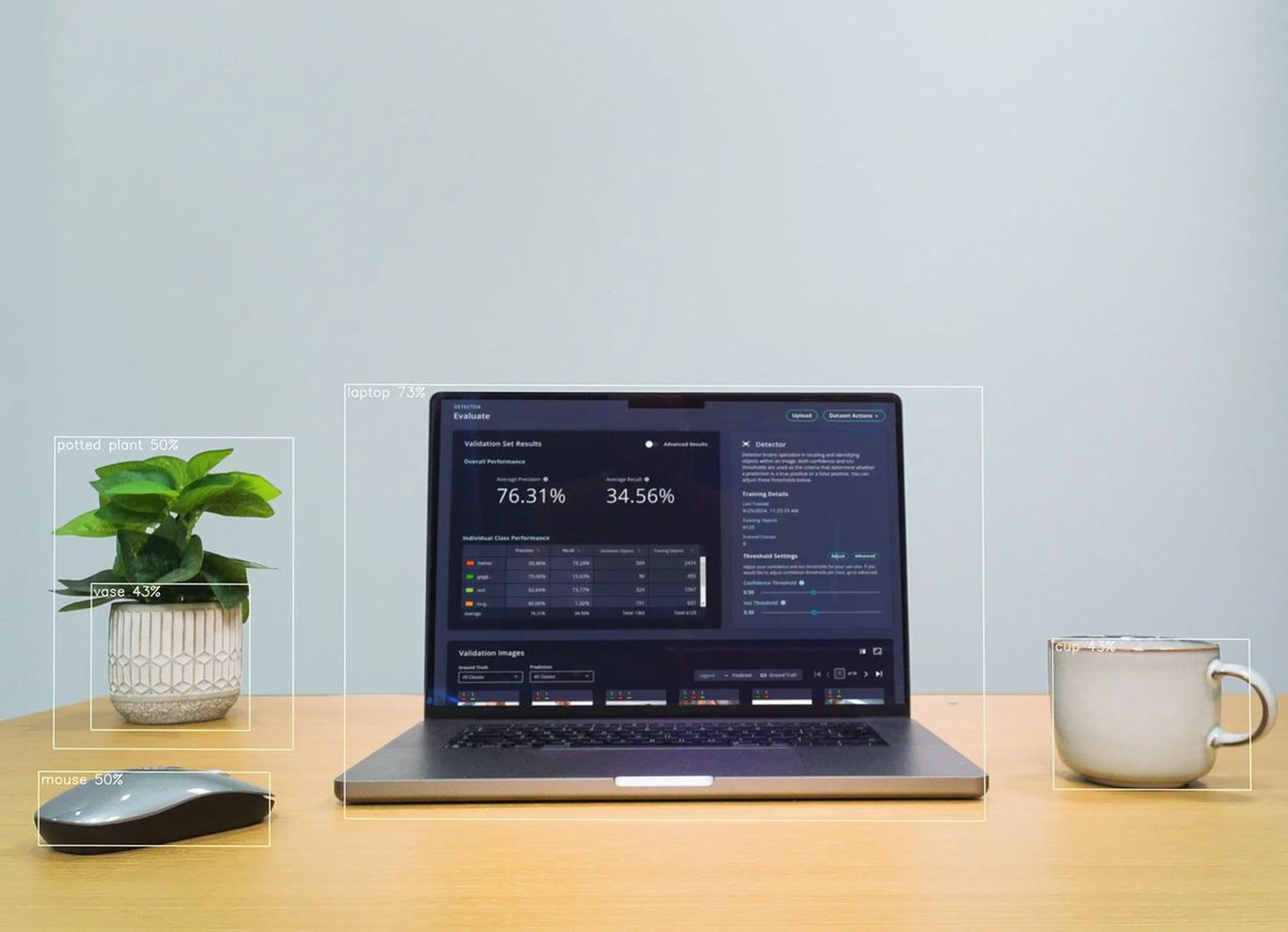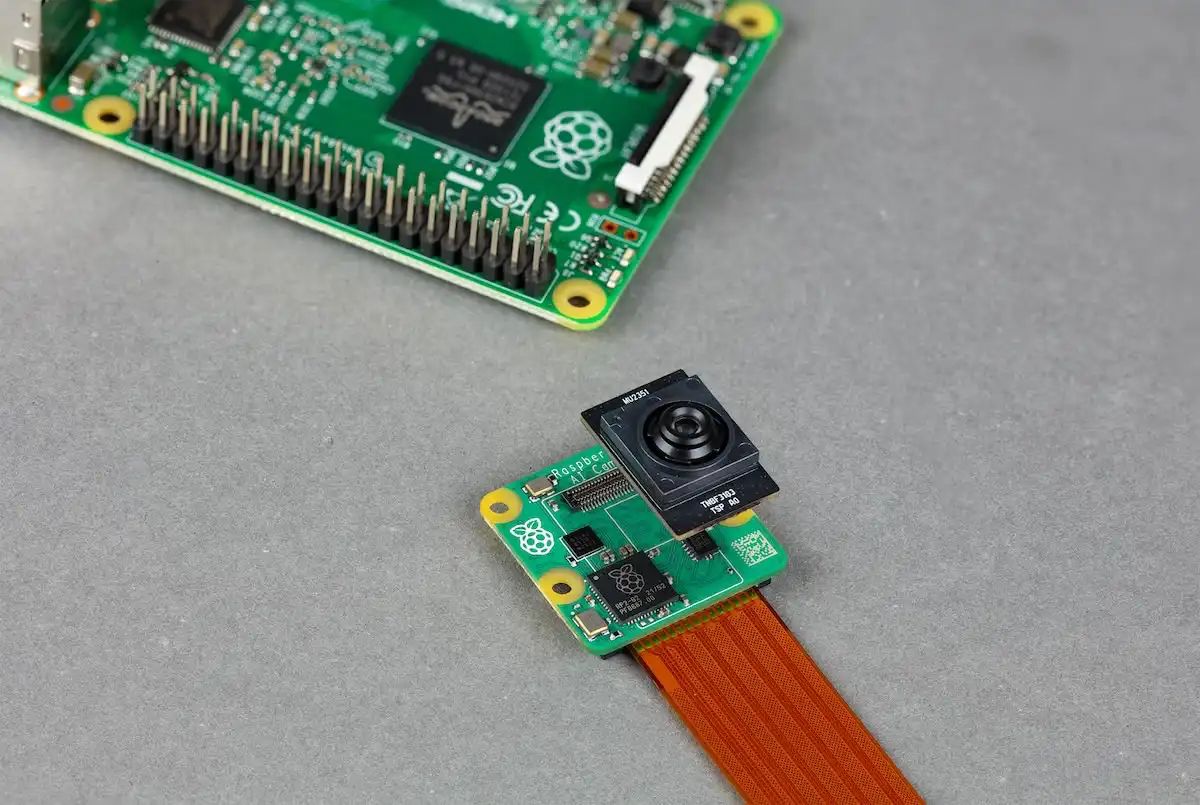The Raspberry Pi Foundation has announced a new AI Camera module for $70 in collaboration with Sony. Being the newest addition to the Raspberry Pi platform, this new AI Camera is designed to help developers in AI image processing tasks with ease. Built-in with Sony’s IMX500 image sensor and Raspberry funded’s RP2040 microcontroller, this new AI camera performs all the processing on board and does not even require GPUs
Resolution of the camera is 12.3 MP, with the ability to record at a rate of 10 frame per second in 4056 x 3040 resolution or 40 frame per second in 2028 x 1520 resolution. The AI Camera is fairly similar in size to the Camera Module 3 at a size of 25 x 24 x 11.9mm.
As much as the Raspberry Pi AI Camera is designed for the hobbyist, it serves the overall tactile and hardware geek beyond the do-it-yourselfer. The organization has noted that as popular industries using Raspberry Pi, noted that already 72% of its sales were in organizations that were incorporating Raspberry Pi products into their operations. With the AI Camera, this is set to rise with the application of smart.
Raspberry Pi has given its word that the AI Camera will remain in production through to, at the very minimum, January 2028 to provide adequate continuity for the developers and businesses that rely on it. This follows suitable supply line issues that were hugely impacted by the pandemic and have since been mainly addressed when it comes to Raspberry’s products, thus enabling the organization to consistently offer dependable market offerings to its increasingly expanding industrial consumers.

Raspberry Pi AI Camera use cases
For instance, when connected to an artificial intelligence algorithm, you can convert this camera into a smart doorbell. The AI Camera is able to detect whether a person is standing in the doorway or objects such as packages. This would allow you to set up alarms that are smarter than simple motion detection, or as some of you mentioned, an alarm system that was sophisticated enough could just turn into a sentiment analysis engine. Instead of receiving notifications Any time a branch moves, you only get notified During occurrences such as a delivery.
If you prefer do-it-yourself home security, the camera can assist you to keep a watchful eye on certain areas of activity and because the image processing is done on camera, it does not overwhelm the rest of Raspberry Pi system. Therefore, you could also run other smart home features at the same time such as operating on lights or managing your sensors without much of a problem.
Raspberry Robin malware is the danger lurking inside your USB
For industrial or business projects, the camera can be used in quality control systems. Suppose you are overseeing a small production line and could place the camera in such a way that it checks if the products are assembled correctly and warn if something is off. Because the current camera is compact and easily collapsible onto existing Raspberry Pi systems, this solution is scalable to points in the production line.
Another feasible use case can be implemented in smart city initiatives, for example, in the case of traffic analysis with the help of AI Camera. It could determine vacant parking space zones or study traffic patterns at some junctions. Since the design is inherently optimized for performance and modularity, it is possible to introduce the system with one camera and extend it to multiple cameras in different areas, such as a city block, without having to redesign most of the system.

Raspberry Pi AI Kit vs. the AI Camera
You should choose between the Raspberry Pi AI Kit and the AI Camera based on your needs. The AI Kit, in general, unleashes more performance with 13 trillion operations per second but is compatible only with Raspberry Pi 5, and you will need to incorporate a camera module. Modern AI cameras are smaller, cheap, and compatible with all ranges of Raspberry Pi, which is why they can be used in a wide array of endeavors. As for image processing and computational tasks linked to a neural network, the AI Camera, because of the use of the Sony IMX500, performs these directly on the vehicle.
They can support the typical deployment of artificial intelligence models that we use today, like TensorFlow or PyTorch, and can be expanded through Sony’s AITRIOS system. This camera fits seamlessly well with the Raspberry Pi-supported libcamera pipeline, so even if you’re processing video with AI, you can always sync image processing with model results to handle tasks like object detection and pose estimation in real-time. As with most Raspberry Pi devices, users have direct access to the model zoo as well as Sony’s developer resources, which lets one deploy models directly or fine-tune others for specific use cases; the AI Camera is perfect for those wanting to experiment (and have fun) as well as companies with real-world problems to solve.
Raspberry Pi AI Camera: Full specifications
| Feature | Details |
| Sensor | 12.3 MP Sony IMX500 Intelligent Vision Sensor with Neural Network Accelerator |
| Framerates | – 2×2 binned: 2028×1520 10-bit 30fps |
| – Full resolution: 4056×3040 10-bit 10fps | |
| Sensor Size | 7.857 mm |
| Pixel Size | 1.55 μm × 1.55 μm |
| Field of View (FoV) | 78.3 (±3) degrees with manual/mechanical adjustable focus |
| Focal Ratio | F1.79 |
| Module Dimensions | 25 × 24 × 11.9 mm |
| Neural Network Management | Integrated RP2040 microcontroller for firmware management |
| Compatibility | Works with all Raspberry Pi models via standard camera connector cable |
| Compliance | Extensive testing completed; compliant with regional and international standards |
| Obsolescence | Production guaranteed until at least January 2028 |
Featured image credit: Raspberry Pi





